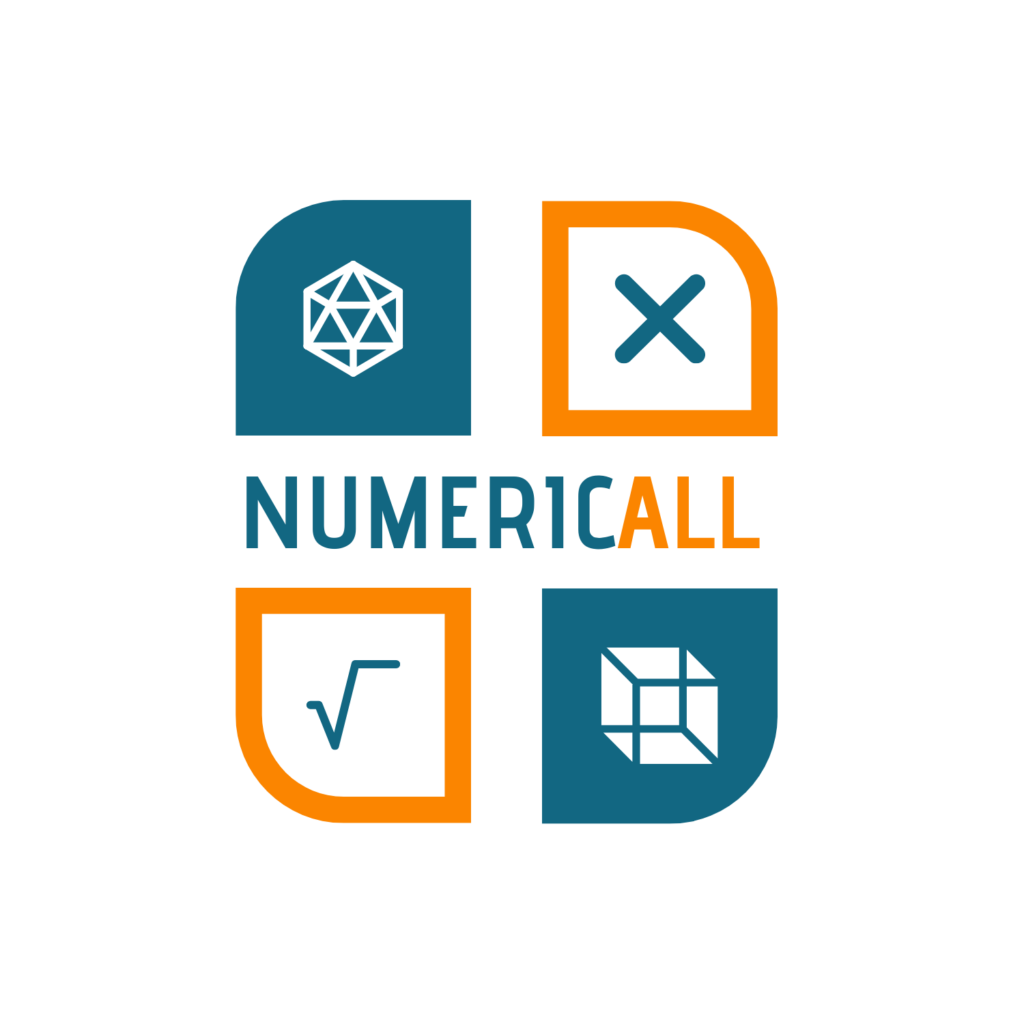The conference was held by the historical Institute Henri Poincaré, in Paris.
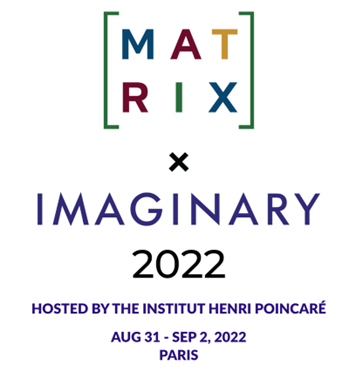
Its program highlights included a panorama of new maths museums, innovation in maths museums and outreach, and maths communication networks and community building.
Therefore, the participation of the Numeric[all] partners was not surprising.
The meeting was very interesting, addressing topics that we should not ignore in our days, such as climate change and artificial intelligence.
The opening of the Maison Poincaré, a new mathematics museum, hosted by the Institute Henri Poincaré, was announced by Adrien Rossille and Sylvie Benzoni. Tracy Drinkwater described the Seattle Universal Math Museum. Can Ozan Oguz brought us similar news from Istanbul. Sharing ideas and experiences on maths museums proved, once again, to be very enriching for all.
In the section Art and Mathematics, that counted several communications, we single out Manya Sundstrom’s talk: Nodal for Music Making. Manya described a very intuitive and interactive system that allows everyone to create musical pieces.
We had a Panel on Science of mathematics communication, and Building worldwide communities, where sharing personal experiences helped to answer many questions we all put forward. We are already many, around the world, promoting mathematics in many ways. The reflection on our actions and community networks comes at the right time.
We all enjoyed a Math bazaar, featuring a Mathematics and Mime performance by Tim and Tanya Chartier, as well as projects, ideas, and performances by Arnaud Chéritat, Olga Cooperman, Paul Stephenson, Anduriel Widmark, Lauren Siegel, Guido Ramellini, Elena Mille, Maria Luisa Spreafico, Riccardo Moschetti, Anja Randecker, Ezgi Kantarcı Oguz, Can Ozan Oguz, Rahel Brugger, Emmanuelle Féaux de Lacroix, Darío Alatorre, Emil Simeonov, among others.
In particular, Numeric[All] project partners took the opportunity to present to an expert audience materials that are being discussed in our project as exhibits of our Gamified Travelling Exhibition. Talks were given by Aleksandra Ravas & Guido Ramellini, and Jorge Nuno Silva were included in Day2:
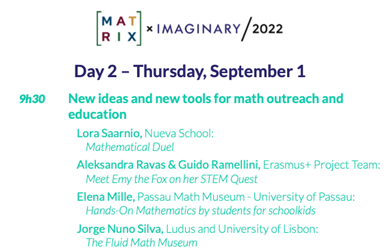
Aleksandra and Guido addressed the issue of fostering significant mathematics among the young.
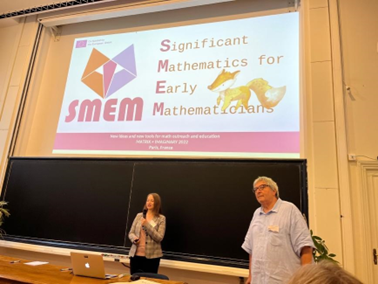
Jorge Nuno Silva invited the audience to a collective reflection on the characteristics of the ideal math museum, where deep scientific concepts spark individual relevant inner experiences in each and all. We quote from the abstract: “The math museum/exhibit that we need must break away from traditional paradigms. This must happen to attend issues of equity and inclusion, but also to better extend math appreciation to all. The museum must fluidify and lose its traditional rigidity, making possible uncountable ways of fruition with the same base material. An abacus in a showcase, or in an interactive booth, is not enough to get the experience of finger bead arithmetics to all. We must also make the maths to share more ductile. We all know of nice shows based on surfaces, calculations, fractals, etc. But, as we know very well, these leave many people out. We need to go deeper into mathematical ideas, so we may share the profound core of maths: the pleasure of thinking. We’ll share some results of our projects.”
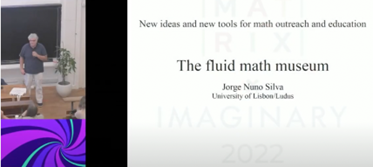
Both communications gave rise to very fruitful discussions, with large participation of the audience. You can reach the videos of the talks here.
